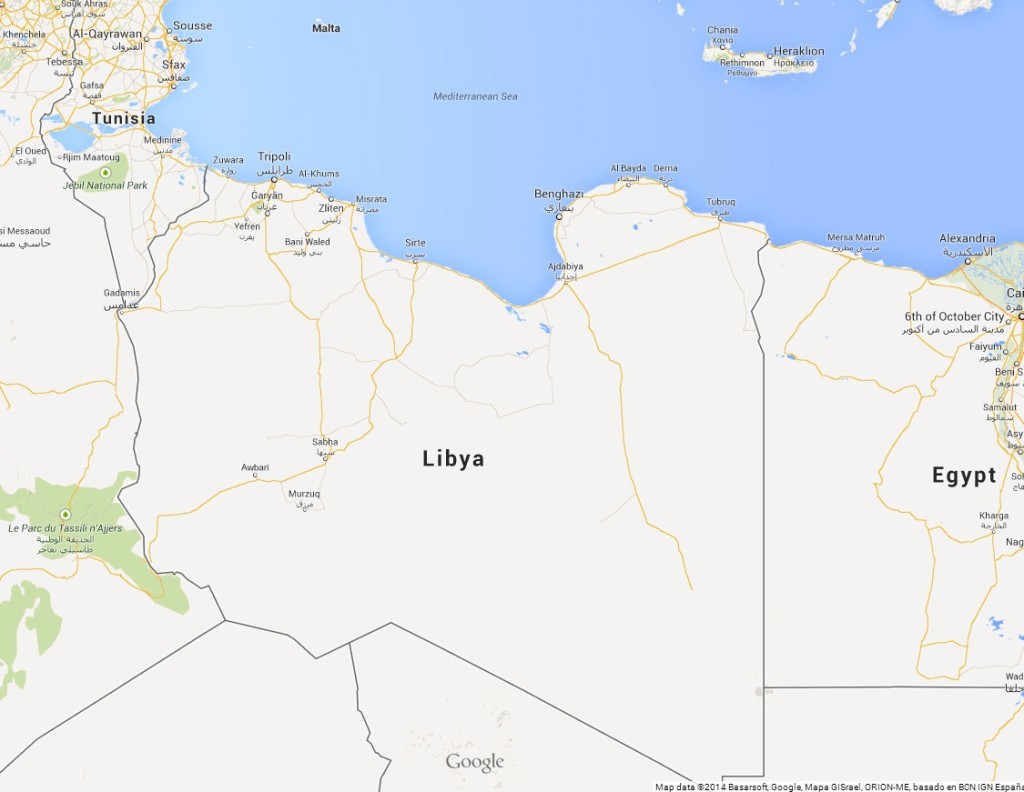
A tanker with oil from eastern Libya returned with its cargo to the North African country after the United Nations blacklisted the shipment, amid an escalating struggle between the nation’s rival governments for control of its crude wealth.
The Distya Ameya will discharge its cargo at the refinery of Zawiya in western Libya over the next few days, Mustafa Sanalla, chairman of the Tripoli-based National Oil Corp., said.
Unloading at Zawiya was delayed because of bad weather, Mansur Abdulla, an official at the refinery, said Sunday by phone.
The UN Security Council added the vessel to its sanctions list on Wednesday after the Mediterranean island of Malta refused to let it dock there.
The NOC in Tripoli called the shipment illegal and informed Libya’s newly formed UN-backed unity government about the eastern government’s attempt to export oil independently.
“This episode is a clear warning to all ship owners and trading companies that oil exports from Libya by any other entity than the National Oil Corporation of Libya are illegal and will be stopped,” Sanalla said.
“We need to agree that our oil should not be divided.”
The NOC’s competing administration in eastern Libya will continue shipping oil from the port of Hariga and notify the UN, Nagi Elmagrabi, head of NOC in the east, said in an interview.
Libya, with Africa’s largest proven crude reserves, broke into two separately governed regions in late 2014, one centered around Tripoli in the west and the other an internationally recognized government in the east.
Libyans are working with U.S. and European support to establish a Government of National Accord.
While the country’s divide extends to the state oil company, it’s the NOC leadership in Tripoli that’s recognized by traders such as Glencore Plc and Vitol Group as the OPEC member’s official crude marketer.
Libya pumped about 1.6 million barrels a day of crude before a 2011 rebellion that ended Moammar Al Qaddafi’s 42-year rule. It’s now the smallest producer in the Organization of Petroleum Exporting Countries, producing 330,000 barrels a day in March, according to data compiled by Bloomberg.
Since Qaddafi’s ouster and death, armed militias are also competing for control of the nation’s oil facilities.
“In the last three years, we have lost close to $75 billion up to April 2016 due to blockades at our oil ports and oil pipelines by militias,” Sanalla said in the statement.
“We can double our production – and national revenues – within a matter of months if the blockades are lifted. We have a plan to bring oil production back to pre-revolution levels,” he said, without providing details.
The Distya Ameya arrived Saturday at about 9 a.m. local time at Zawiya in western Libya, Sanalla said. The tanker, with a cargo-carrying capacity of 650,000 barrels, will unload in the next few days, he said.
By returning to Libya, the tanker avoided the more forceful resolution to an incident in 2014 when U.S. Navy SEAL commandos seized a crude tanker that rebels tried to ship from the country’s central region. That ship was subsequently rerouted to a port under the control of the Tripoli authorities.